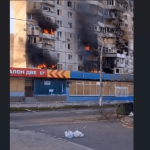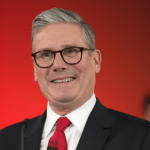Vatican City – Pope Francis, the 266th leader of the Roman Catholic Church and its first pontiff from Latin America, has died at the age of 88. The Vatican announced his passing on Easter Monday, 21 April 2025, at 7:35 a.m. local time at his residence in Casa Santa Marta.
Cardinal Kevin Farrell, the Vatican’s Camerlengo, confirmed the death. The official statement read, “Dearest brothers and sisters, with deep sorrow I must announce the death of our Holy Father Francis. At 7:35 this morning, the Bishop of Rome, Francis, returned to the house of the Father.
His entire life was dedicated to the service of the Lord and of His Church. He taught us to live the values of the Gospel with fidelity, courage, and universal love, especially in favor of the poorest and most marginalized.”
The Church now enters a period of mourning as tributes pour in from world leaders, clergy, and the faithful around the globe.
Cause of Death: Complications from Bronchopneumonia and Kidney Failure
Pope Francis’s health had been a matter of public concern for several years. In February 2025, he was admitted to the Gemelli Hospital in Rome with what was initially described as acute bronchitis. However, further complications arose, including double pneumonia and significant respiratory distress.
During his 38-day hospital stay, his condition fluctuated, with medical teams treating a range of issues, including a bacterial lung infection and the onset of early-stage kidney failure. Though he showed signs of improvement and returned to the Vatican in March, his health quickly deteriorated in April.
Vatican officials confirmed that the cause of death was multiple organ failure, precipitated by severe bronchopneumonia and renal complications. Despite his frailty, the Pope made a final public appearance on Easter Sunday, delivering a brief blessing to a crowd in St. Peter’s Square from a wheelchair.
A Life of Devotion: From Buenos Aires to the Vatican
Born Jorge Mario Bergoglio on 17 December 1936 in Buenos Aires, Argentina, Pope Francis was the son of Italian immigrants. He trained as a chemical technician before joining the Society of Jesus in 1958, beginning his spiritual journey in the Jesuit order.
Ordained as a priest in 1969, Bergoglio served in a variety of educational and pastoral roles before being appointed Archbishop of Buenos Aires in 1998. Known for his modest lifestyle and commitment to the poor, he was elevated to cardinal in 2001 by Pope John Paul II.
When elected Pope on 13 March 2013, following the historic resignation of Pope Benedict XVI, Francis broke several precedents: the first Jesuit pope, the first from the Americas, and the first non-European pontiff in over 1,200 years.
His decade-long papacy was defined by themes of humility, social justice, and outreach. Pope Francis chose not to reside in the Apostolic Palace, instead opting for the more modest Casa Santa Marta. He championed causes such as climate change, poverty alleviation, and interfaith dialogue.
Key highlights of his pontificate include:
- The publication of Laudato Si’, an encyclical calling for urgent environmental reform
- Increased pastoral focus on the LGBT community and divorced Catholics
- Strong advocacy for migrants and displaced populations
- Efforts to address clerical sexual abuse and push for Church accountability
Despite his popularity among progressives, he faced criticism from conservative circles for what some viewed as too liberal an approach to Church doctrine.
Health Struggles Through the Years
Pope Francis’s health had been under scrutiny for much of his tenure. As a young man, he underwent surgery to remove part of his lung due to a severe infection. In later years, he was plagued by chronic sciatica and persistent knee problems, often requiring the use of a wheelchair.
In 2021, he underwent colon surgery for diverticulitis, and in 2023, he had an abdominal hernia repaired. By 2024, his public appearances had become less frequent, and he delegated more responsibilities to Vatican officials, prompting speculation about a possible resignation — a move he never made.
Over the course of his papacy, Pope Francis appointed nearly 80 percent of the cardinals who will now participate in the conclave to choose his successor. This significantly shapes the ideological balance of the future UK leadership of the Catholic Church.
Funeral arrangements are expected to be announced shortly, with ceremonies to be held in Vatican City, followed by the traditional period of mourning. The College of Cardinals will soon convene for a conclave to elect the next pope.
Pope Francis leaves behind a Church he sought to renew – more inclusive, more humble, and more engaged with the world’s most pressing challenges.






